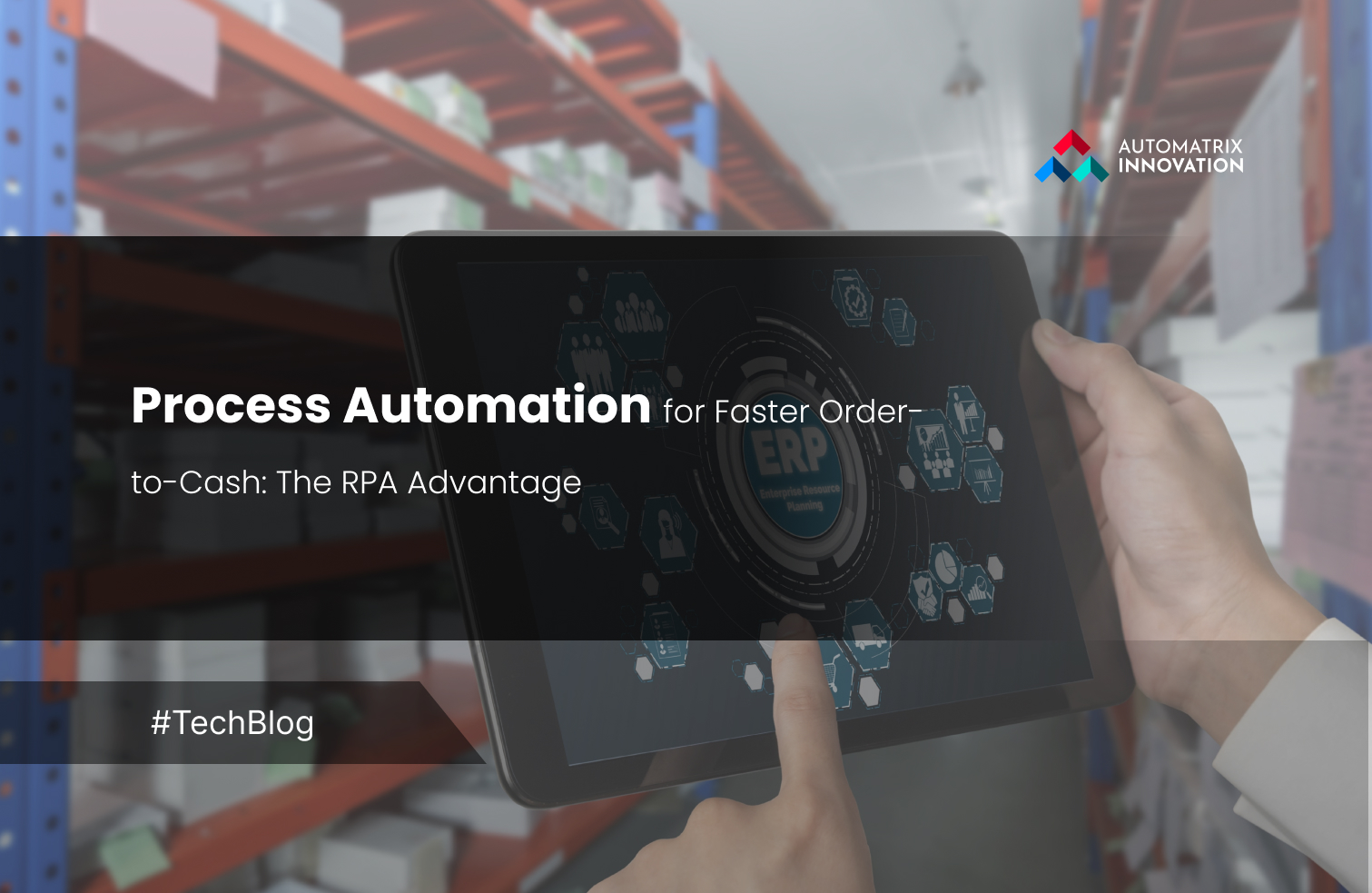RPAProcess Automation for Faster Order-to-Cash: The RPA Advantage
13 August 2025

Growth in business usually hinges upon the speed at which transactions flow from order taking to cash realization. Speed and precision during this cycle in the current competitive marketplace can make the difference between success and mere survival. Process Automation has become the game-changer, especially by embracing Robotic Process Automation (RPA). It converts tedious, error-ridden processes into efficient, precise functions, allowing companies to compress the entire order-to-cash cycle.
Accelerating Order-to-Cash with Precision
The order-to-cash cycle has several stages – from order entry and invoicing to payment collection and reconciliation. Conventionally, these stages demand substantial human intervention, resulting in bottlenecks, delays, and data inconsistencies. Process Automation substitutes these human touchpoints with software robots that can automate the repetitive and rules-driven processes with unparalleled speed.
With Process Automation through RPA from Automatrix Innovation, orders are inputted in real-time, and data is being validated in real-time as well. Invoices are created without a lag. With lowered reliance on manual intervention, turnaround gets improved, cash flow improves, and customer satisfaction increases.
Eliminating Repetitive Roadblocks
Recurring tasks tend to drag down the order-to-cash cycle. Data entry, payment matching, and report generation take precious time. RPA-driven Process Automation of Automatrix Innovation performs such tasks 24/7, discarding delays due to human availability or fatigue.
This change is not merely a matter of working faster – it's one of ensuring accuracy in every transaction. Every automated process adheres to pre-established rules, minimizing errors that might otherwise hold up payments or lead to disputes. Businesses thus enjoy enhanced efficiency and enhanced financial well-being.
Seamless Integration Across Systems
Most companies have several platforms – ERP solutions, CRMs, and payment gateways – that manage different aspects of the cycle. Data transfer between these platforms manually may result in duplication and delays. Process Automation allows smooth integration, which allows RPA bots to transfer data between platforms with no human intervention.
This cross-platform functionality speeds up operations such as credit checking, order confirmation, and payments posting. The outcome is a completely connected order-to-cash process where data moves seamlessly and work gets done quicker.
Enhancing Customer Experience
Clients appreciate speed and accuracy as much as the quality of the product. Slowness in generating an invoice or confirming payments can breed frustration and strain relationships. Through Process Automation, companies can guarantee prompt order updates, faster confirmations, and open communication.
RPA systems from Automatrix Innovation can instantly notify customers about order status, remind customers about payments, and confirm receipts – all without any lag time. This uniform dependability fosters confidence and promotes repeat business.
Strengthening Compliance and Audit Readiness
Order-to-cash operations frequently involve compliance with industry regulations and corporate policies. Manual operations may complicate tracking compliance. Process Automation will ensure that all transactions are captured, time-stamped, and retained for auditing.
RPA-based systems generate compliance reports automatically, monitor payment histories, and ensure data integrity. This not only helps save time while auditing but also safeguards the business from regulatory risks.
Data-Driven Decision Making
One of Process Automation's unsung benefits in the order-to-cash process is its potential to create useful data insights. Monitoring every step in real time, companies can spot bottlenecks, predict cash flow, and track efficiency gains.
With transparency into cycle times, payment delays, and customer actions, decision-makers can make targeted improvements. This data-driven strategy transforms the order-to-cash cycle from a reactive process to a strategic asset.
Cost Reduction Through Efficiency
Quicker processing means that fewer resources are invested in manual work. Process Automation saves employees time by allowing them to dedicate more time to high-value tasks such as customer relationship management and strategic planning.
Furthermore, fewer errors translate to less rework, fewer payment claims, and less financial leakage. The investment payback is realized as the order-to-cash cycle decreases, driving faster revenue recognition.
Scaling Without Compromising Quality
As companies expand, so do the orders and transactions. Involvement by human resources becomes a time-consuming exercise without attendant staff. Process Automation provides scalability without accompanying rises in cost or time.
RPA robots are able to support high volumes of transactions with the same accuracy and speed, so that growth will not degrade service quality. Process Automation is thus perfect for businesses that want to grow without sacrificing efficiency.
Future-Ready Order-to-Cash Operations
The inclusion of Process Automation into the order-to-cash process lays the groundwork for embracing more sophisticated technologies such as AI-based analytics, predictive payment behavior insights, and smart workflow routing. Companies that invest in automation now position themselves to respond quicker to changes in the market and shifting customer expectations.
By continuously streamlining processes with automation, organizations are able to remain ahead in both speed and service, making their order-to-cash cycle a strong point of competition.
In conclusion, implementation of Process Automation using RPA of Automatrix Innovation is revolutionizing the way companies manage their order-to-cash process. From accelerating transactions and error removal to enhancing customer satisfaction and compliance, the advantages are quantifiable and instant. Organizations that undertake this revolution not only reduce processing times but also lay a foundation for sustainable growth and success in the long run.
